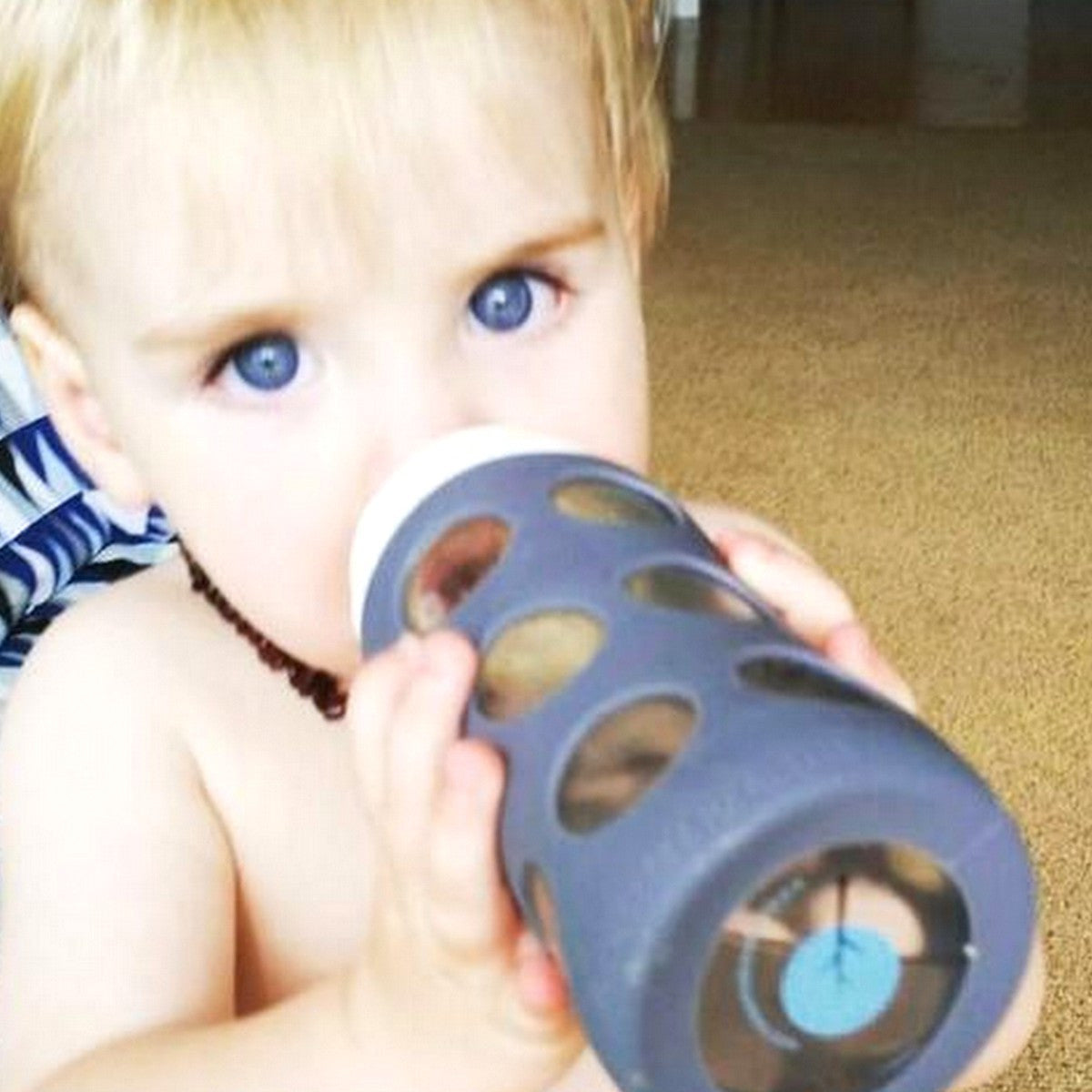Plastic is not only bad for our planet but bad for our bodies too.

Plastic is not only bad for our planet but is also causing havoc with our bodies. Most of you would have heard of BPA (Bisphenol-A), a chemical which is often in the media. Unfortunately, this is just one of the chemicals found in plastics.
Our children are believed to have the highest daily intake of Bisphenol-A due to the use of plastic drink bottles, sippy cups, plates and lunchboxes. Most plastics are by nature leaching compounds which can be absorbed into liquids and foods especially when heated. Our babies and children are most at risk due to their underdeveloped endocrine systems and enzymes which make them particularly vulnerable to chemicals and toxins.
With the speed of changes to technology and products in our lives, there really is little known about the true effect of plastic and the complications to our health. We can see the disaster that plastic is causing for our planet but in reality, the human body is just a guniea pig for plastic... is it really worth the risk?

So, what is BPA and what are Phthalates?
Bisphenol A is the most common chemical used in plastic and is the main building block in polycarbonate. It is a powerful endocrine disruptor which can mimic the body’s own hormones to an alarming degree. Many bottle brands misleadingly advertise as being BPA free. To meet European BPA free standards there only needs to be a LOW level of BPA and not a total removal. This is truly an offense on the unwitting consumer.
Babies are most sensitive to Bisephenol-A due to their underdeveloped and very sensitive endocrine systems. Studies have even linked prenatal exposure to later neurological difficulties such as ADHD, depression and hyperactivity.
Starting in 2008, several governments questioned the safety of this compound, prompting worldwide scientific research into the effects of BPA. A 2010 report from the United States Food and Drug Administration (FDA) raised further concerns regarding exposure of foetuses, infants, and young children.[1] In September 2010, Canada became the first country to declare BPA a toxic substance.[2][3] In the European Union and Canada, BPA use is banned in baby bottles.
Phthalates are chemical plasticizers used to soften plastics that would otherwise be brittle and crack when bent. Because phthalates are not chemically bound to the plastics they’re added to, they’re continuously released into the air, food or liquid
Studies show that there is potential for phthalates to lower sperm production and cause anatomical abnormalities related to the male genitalia . There has also been a suggested link between phthalates and asthma, timing of puberty or the risk for childhood obesity, among others.
By nature, plastic DOES leach chemicals and although there is not enough evidence to show that these are harmful to humans, studies are now being conducted to determine their safety. Remember that 2 years ago BPA was regarded as 100% safe for human consumption.
I believe that plastic is dangerous to you and your babies health.